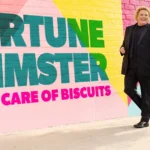Struggling with addiction can feel like you’re caught in a storm with no clear direction. It’s isolating and exhausting, especially when it seems like the world around you keeps moving while you’re stuck. But here’s the thing: hitting the brakes and asking for help isn’t the end of the line—it’s actually the moment you start rewriting your story. For LGBTQ folks, the path to recovery often comes with added layers of complexity. Whether it’s dealing with societal pressures, family dynamics, or identity struggles, finding a space where you can be your authentic self while healing is everything.
Rehab can feel intimidating, no doubt. But what if we flipped the script? What if it’s not just about quitting substances but about rediscovering your power? Let’s unpack how rehab can be an LGBTQ-safe space to grow, heal, and thrive—and why you deserve every chance to take back control of your life.
What Does Rehab Really Look Like?
Forget the outdated stereotypes. Rehab isn’t about sitting in a circle, sharing clichés, or being judged. It’s a space where you can get honest about what’s been holding you down and figure out what’ll lift you up. For LGBTQ folks, a good program doesn’t just acknowledge your identity—it celebrates it.
We’re talking about places that honor your pronouns, create safe spaces for open conversations, and connect you with counselors who actually get it. You’re not just another file or statistic; you’re a whole person, and your identity deserves respect. The beauty of rehab lies in its ability to strip away the noise and help you see what’s really going on inside.
You’ll meet people from all walks of life, each with their own stories and struggles. Rehab isn’t about perfection—it’s about progress. No one expects you to have it all figured out, and the process can actually feel freeing. You’re allowed to mess up, cry, laugh, and start over as many times as you need.
Healing Isn’t Just Physical, It’s About the Soul, Too
Getting clean isn’t just about breaking physical dependency; it’s about healing your entire self. Addiction doesn’t happen in a vacuum, and unpacking the emotional and spiritual layers can be game-changing. For many in the LGBTQ community, the idea of exploring spirituality in rehab might sound a little daunting—maybe even a little uncomfortable.
But here’s the twist: spirituality doesn’t have to mean religion. It’s about connecting to something bigger than yourself, whether that’s through mindfulness, nature, art, or just finding meaning in the little things. If you’ve ever felt disconnected from yourself or your community, rehab can help rebuild those bridges.
Imagine this: quiet moments of meditation, journaling out all the messy feelings, or just finding people who understand what you’re going through without judgment. It’s less about what you believe in and more about learning to believe in yourself again. The magic happens when you realize you’re not alone, and that sense of connection is what starts to heal the deeper wounds.
Can You Get Fired for Going to Rehab? Let’s Clear That Up
The fear of losing your job is a huge reason people hesitate to get help. If you’ve been wondering, “can you get fired for going to rehab?” The short answer is: probably not. In most cases, going to a recovery program for help shouldn’t be a reason to be fired.
Here’s why: employment laws in many states protect workers who take time off for medical reasons, and that includes addiction treatment. A lot of workplaces also have Employee Assistance Programs (EAPs) designed to support employees dealing with substance use. Your job might even have policies in place to encourage you to get the help you need.
But—and this is a big but—you’ve got to know your rights. Some industries and contracts have specific rules, so understanding the fine print is key. If you’re nervous about how to bring this up at work, you’re not alone. Many people find that being upfront (while protecting their privacy) works out better than expected. A good employer will value your health over short-term productivity because, let’s face it, no one thrives when they’re struggling.
Getting help isn’t a weakness; it’s strength. And if your workplace doesn’t see it that way, that’s on them—not you. Knowing the law and advocating for yourself are powerful steps toward making recovery a priority without unnecessary stress.
Building Your People
If rehab teaches you one thing, it’s that you don’t have to do this alone. Addiction thrives in isolation, and one of the best things about recovery is finding people who just get it. For LGBTQ folks, that sense of connection can feel even more profound.
Whether it’s a chosen family, a support group, or even one solid friend, having someone in your corner makes all the difference. Rehab often connects you with peers who are also working through their own battles, creating a space where vulnerability feels safe. You’re not competing, comparing, or trying to outdo anyone—you’re just healing alongside them.
In the LGBTQ community, there’s a unique strength in shared experiences. Whether it’s trading stories about coming out, navigating relationships, or overcoming societal stigma, these bonds remind you that you’re not fighting alone. And the best part? These connections often last long after rehab ends.
Taking It One Day at a Time
Recovery isn’t about hitting a finish line; it’s about finding your footing and learning to walk steady again. It’s about waking up each day and deciding, “Today, I’m choosing me.” Some days will be easier than others, and that’s okay. The journey isn’t linear, but every step forward counts.
For LGBTQ folks, recovery can feel like reclaiming all the parts of yourself that got lost along the way. It’s about celebrating your wins, no matter how small, and knowing that your identity and recovery can coexist beautifully. Rehab isn’t the end of the story; it’s the prologue to a life you’re finally in control of.
Your Story Deserves a Happy Ending
Addiction doesn’t define you. It’s just one chapter in a story that’s far from over. Taking the step to go to rehab isn’t about admitting defeat—it’s about choosing hope. It’s about recognizing that you’re worth saving, no matter how far you think you’ve fallen.
In a world that sometimes feels like it’s constantly trying to dim your light, choosing recovery is the ultimate act of rebellion. You’re saying, “I’m still here, and I’m not giving up.” So, whether you’re just starting to think about rehab or you’re already on the path, remember: you’ve got this. And there’s a whole community cheering you on.
Last modified: December 13, 2024














